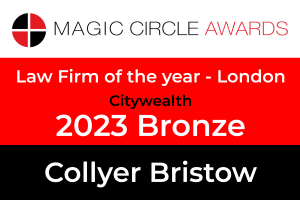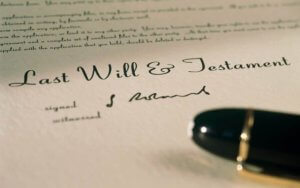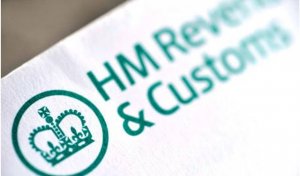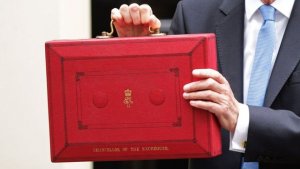- Private Wealth
- Tax & Estate Planning

Shorter Reads
How to efficiently gift business assets
This article explores how business assets can be passed to the next generation, with inheritance and capital gains tax in mind.
1 minute read
Published 15 November 2021
Key information
- Specialisms
- Business
- Private Wealth
For certain individuals, business assets can form a significant portion of their wealth and so considering how those assets might be passed to the next generation often forms a key part of their estate plan. Business assets can benefit from certain tax reliefs and so should be given special consideration.
Inheritance tax
The starting point is that business assets are subject to the normal inheritance tax rules on outright lifetime gifts and gifts into trust and so, for example, if the donor survives an outright gift of business assets by seven years then no inheritance tax would fall due.
However, qualifying business assets can be partially or fully relieved from inheritance tax under Business Relief (often known by its previous name of Business Property Relief or “BPR”), once they have been held for two years. BPR can apply to gifts of qualifying business assets, whether outright gifts or gifts into trust, at either 50% or 100% relief (depending on the asset in question). In the case of a trust, if the trust continues to hold qualifying business assets, they will remain relieved from inheritance tax and therefore not subject to the usual 10 year charges and exit charges.
Please note, there are however clawback provisions to reverse the effects of the relief if the settlor of the trust dies and the BPR conditions do not continue to be met.
Another pitfall to watch out for relates to “excepted assets”. While a business as a whole may qualify for BPR, if it holds assets which are not used in the business (such as excess cash) then those assets may reduce the amount of relief available.
Capital gains tax
A gift of business assets will be a disposal at the assets’ open market value and any gain potentially chargeable to CGT. Given many entrepreneurs build up businesses from very little, their business assets can frequently stand at considerable gains.
Certain business assets (such as unlisted shares) are eligible for CGT hold over relief. Here the gift does not trigger any immediate CGT, but instead the gain is held over and the recipient acquires the asset at the donor’s base cost. On a later disposal of the asset by the new owner, the gain is calculated by reference to that lower base cost (unless hold over relief is again available). This can allow business assets to be passed to the next generation without breaking up the business to pay an immediate tax charge.
Other CGT reliefs which may apply are Business Asset Disposal Relief (formerly Entrepreneurs’ Relief) and Investors’ Relief, both of which can reduce the amount of tax paid on a disposal of business assets. Depending on the circumstances, a donor may choose to make some use of these reliefs, rather than holding over the entire gain.
We have written a series of articles around Lifetime Giving, view our latest on US/UK giving here.
Related content
Shorter Reads
How to efficiently gift business assets
This article explores how business assets can be passed to the next generation, with inheritance and capital gains tax in mind.
Published 15 November 2021
Associated sectors / services
For certain individuals, business assets can form a significant portion of their wealth and so considering how those assets might be passed to the next generation often forms a key part of their estate plan. Business assets can benefit from certain tax reliefs and so should be given special consideration.
Inheritance tax
The starting point is that business assets are subject to the normal inheritance tax rules on outright lifetime gifts and gifts into trust and so, for example, if the donor survives an outright gift of business assets by seven years then no inheritance tax would fall due.
However, qualifying business assets can be partially or fully relieved from inheritance tax under Business Relief (often known by its previous name of Business Property Relief or “BPR”), once they have been held for two years. BPR can apply to gifts of qualifying business assets, whether outright gifts or gifts into trust, at either 50% or 100% relief (depending on the asset in question). In the case of a trust, if the trust continues to hold qualifying business assets, they will remain relieved from inheritance tax and therefore not subject to the usual 10 year charges and exit charges.
Please note, there are however clawback provisions to reverse the effects of the relief if the settlor of the trust dies and the BPR conditions do not continue to be met.
Another pitfall to watch out for relates to “excepted assets”. While a business as a whole may qualify for BPR, if it holds assets which are not used in the business (such as excess cash) then those assets may reduce the amount of relief available.
Capital gains tax
A gift of business assets will be a disposal at the assets’ open market value and any gain potentially chargeable to CGT. Given many entrepreneurs build up businesses from very little, their business assets can frequently stand at considerable gains.
Certain business assets (such as unlisted shares) are eligible for CGT hold over relief. Here the gift does not trigger any immediate CGT, but instead the gain is held over and the recipient acquires the asset at the donor’s base cost. On a later disposal of the asset by the new owner, the gain is calculated by reference to that lower base cost (unless hold over relief is again available). This can allow business assets to be passed to the next generation without breaking up the business to pay an immediate tax charge.
Other CGT reliefs which may apply are Business Asset Disposal Relief (formerly Entrepreneurs’ Relief) and Investors’ Relief, both of which can reduce the amount of tax paid on a disposal of business assets. Depending on the circumstances, a donor may choose to make some use of these reliefs, rather than holding over the entire gain.
We have written a series of articles around Lifetime Giving, view our latest on US/UK giving here.
Associated sectors / services
- Private Wealth
- Tax & Estate Planning
Need some more information? Make an enquiry below.
Enjoy reading our articles? why not subscribe to notifications so you’ll never miss one?
Subscribe to our articlesMessage us on WhatsApp (calling not available)
Please note that Collyer Bristow provides this service during office hours for general information and enquiries only and that no legal or other professional advice will be provided over the WhatsApp platform. Please also note that if you choose to use this platform your personal data is likely to be processed outside the UK and EEA, including in the US. Appropriate legal or other professional opinion should be taken before taking or omitting to take any action in respect of any specific problem. Collyer Bristow LLP accepts no liability for any loss or damage which may arise from reliance on information provided. All information will be deleted immediately upon completion of a conversation.
Close






























































































